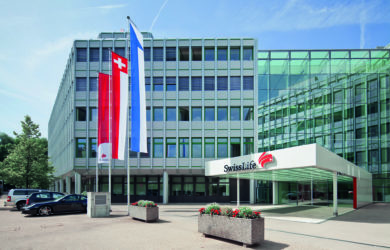On Friday still in the “old system” – on Monday with FiANTEC
“The highlight was the actual changeover: our employees were still working in the old system on Friday, and on Monday they booted up the computers and worked on the new one. It was excitement like the Olympics – and we had safely achieved all our goals.”
– Albert Godehart, Project Officer and Product Manager Insurance and Commission Accounting at apoBank
Project summary
In the course of outsourcing IT to the former GAD eG, one of the largest banking migrations of recent years was carried out, as all banking applications were migrated to GAD’s bank21 banking system. One of the most extensive and challenging sub-projects was the migration and conversion of the central agent database and the commission settlement system of apoBank.
“Like clockwork…”
apoBank migrated its entire IT to GAD’s bank21, one of the largest banking migrations in recent years. Also at the start: Smooth commission settlement with FiANTEC.
At the end of 2009, Deutsche Apotheker- und Ärztebank eG (apoBank) made a strategically groundbreaking decision: to no longer consider information technology as a core competence, but to outsource it to GAD. At the same time, this was the starting signal for one of the largest bank migrations in recent years, because after all, all bank applications were to be migrated to GAD’s bank21 banking system. In order to meet the ambitious schedule, precise project management and top performance were required.
Challenging project
One of the most extensive and challenging sub-projects was the migration and conversion of apoBank’s central agent database and commission settlement system. Albert Godehart, project officer and product manager for insurance and commission accounting at apoBank, emphasizes the special role of this system in the bank’s business model: “In addition to our own advisors in our branches, the intermediaries represent another important pillar of our business. Since they cooperate with us on a commission basis, it is of course a central task to always be able to efficiently and reliably handle the diverse business relationships with these partners.”
For this purpose, apoBank had built up its own Oracle-based intermediary database and developed a system itself in which the settlements were processed along with all document and payment flows. At the same time, it served as customer relationship management and had an efficient contract management. A separate business intelligence layer enabled differentiated evaluations for statistics, controlling and management.
The expense of this sophisticated system was well justified. After all, it handles revenues and payments in the clear double-digit millions year after year.
And it was precisely for this model that there were no standards on the market at the time: because here both business process directions were mapped in a uniform workflow. With the decision to outsource information technology to GAD, a solution also had to be found for the continuation of commission settlement.
On the one hand, the solution to be used should also be fully integrated into bank21, on the other hand, the know-how accumulated over many years had to be preserved and used. It made sense to transfer the apoBank application to the FiANTEC settlement solution. In a first phase, a detailed concept was developed, which was significantly influenced by the employees of apo- Bank: “As users, we knew best what was needed,” confirms Albert Godehart. “So all workflows and all important requirements were mapped one-to-one.” Flexibly and in close cooperation, the necessary extensive changes and adjustments were implemented in the standard system. For the several hundred thousand data records, special attention was paid to security and quality assurance as well as to compliance with all legal requirements. In view of the large number of external users entering data on the part of the agents, a highly differentiated authorization management system also had to be included. Since the presentation of the first prototypes, simulations and tests have been started step by step and parallel to the further development work. Intensive testing was an essential prerequisite for smooth commissioning in all subprojects, but here, minor details were still being tweaked literally up to the last minute.
Smooth commissioning
The sub-project was critical insofar as it directly involved payment flows and the system processes legally relevant data and documents. The preparation and implementation of the commission accounting data migration alone took around 500 person days. After two years of project work, the extensive preparations and programming work were completed and the actual migration was on the agenda.
During only one weekend, the entire apoBank IT was completely converted to the new platform. Since then, it has had more powerful, state-of-the-art systems and technologies. As part of the migration project, many processes were optimized and useful functionalities were added. The bottom line is that the outsourcing and the pinpoint execution contribute to significant and sustainable efficiency and cost benefits for apoBank.
“We experienced very good support in this highly critical project,” Albert Godehart sums up. “All essential functions, features, workflows were transferred to the new systems completely and on schedule in intensive, fruitful cooperation. The highlight was the actual changeover: on Friday, our employees were still working in the old system, and on Monday they booted up their computers and worked on the new one. It was excitement like the Olympics – and we had safely achieved all our goals.”



